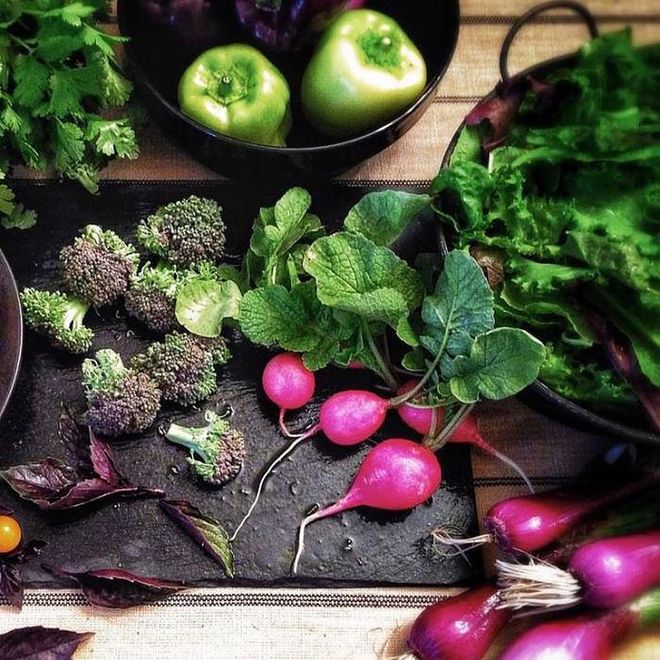5 Nutrition Tips To Clear Up Your Isolation Breakout
A naturopathic nutritionist shares her tips for looking after your gut (and skin)


FELICITY INGRAM FOR HARPER'S BAZAAR
skin health
Have these weeks of isolation left you with a dull complexion or repeated break-outs of spots? Life stresses, changes in our skin care routine and more time indoors could all be to blame – but so could what you've been eating.
The gut and skin are very closely connected. If you are suffering from 'lockdown skin', it is worth looking at how your diet might have changed since isolating at home.
Support your gut by making sure you’re eating a variety of fruits, vegetables, whole grains, legumes, nuts and seeds, whether thats tinned, frozen, cupboard or dried – it all counts.
We spoke to naturopathic nutrition coach Jessica Shand about how you can support and improve your skin during self-isolation.
Reduce alcohol
Take a look at what you’re drinking. Has isolation meant you’re reaching for a glass (or two) of wine on a casual Monday when usually you would wait until the weekend?
Alcohol triggers inflammation in the skin so make sure you are consciously aware of how much you’re drinking and don’t fall into habits that might be hard to break.
Sugary drinks and excessive coffee will have a similar effect as alcohol and might cause skin to flare up if drinking too much.
Hydrate properly throughout the day with filtered water. Remember to drink eight glasses per day. Keep a refillable bottle by your side at all times as a good reminder.

Photo: Getty
nutrition
Eat a rainbow of veggies
Nourish your skin from the inside out by ensuring you’re eating enough fruits and vegetables – even if they are frozen – and focus on adding these to your meals to improve your overall diet.
The high fibre content will aid your digestive system in getting rid of toxins built up in the body, which could help prevent breakouts.
Eat more walnuts
Most nuts, due to being packed with healthy fats will benefit the skin and walnuts are particularly beneficial for you as they are high in omega 3 fatty acids needed for promoting healthy skin. Walnuts have anti-inflammatory and anti-microbial properties which might help reduce angry skin or break outs as they work to target the infection in the sebaceous glands of the skin. They are also one of the richest plant sources of omega-3 fatty acids.
Ditch sugary snacks
Excessive refined sugar consumption from snacks like chocolate and sweets will have a negative effect on your skin (and will cause spikes in your blood sugar levels, causing you to reach for those snacks even more). Limit sugary snacks and ideally replace with nutrient dense options including raw nuts and fruit, nut butter in smoothies, homemade energy balls and fresh and dried fruit.
Eat omega-3 fatty acids
Omega-3 fatty acids act as an anti-inflammatory agent in the body providing you with the amazing nutrients it needs to look and feel its best (whilst also being a super food for your hair and nails too).
Make sure you are having at least 2 to 3 portions of omega-3 fatty acids per week by eating salmon, sardines, anchovies, walnuts and almonds. Salmon is particularly beneficial as it contains many health-boosting nutrients helping to boost collagen production.
Focusing on fuelling your body with natural, wholesome foods will provide your body with the variety of vitamins, minerals and nutrients it needs to function at its best and will result in clearer, brighter skin during isolation and beyond.
This article originally appeared on Harper’s BAZAAR UK.
Related articles:
Are Doctor-Backed Skincare Brands Better For Your Skin?
The Best Anti-Ageing Creams Your Future Self Will Thank You For
Staring At Your Phone Could Be Messing With Your Skin